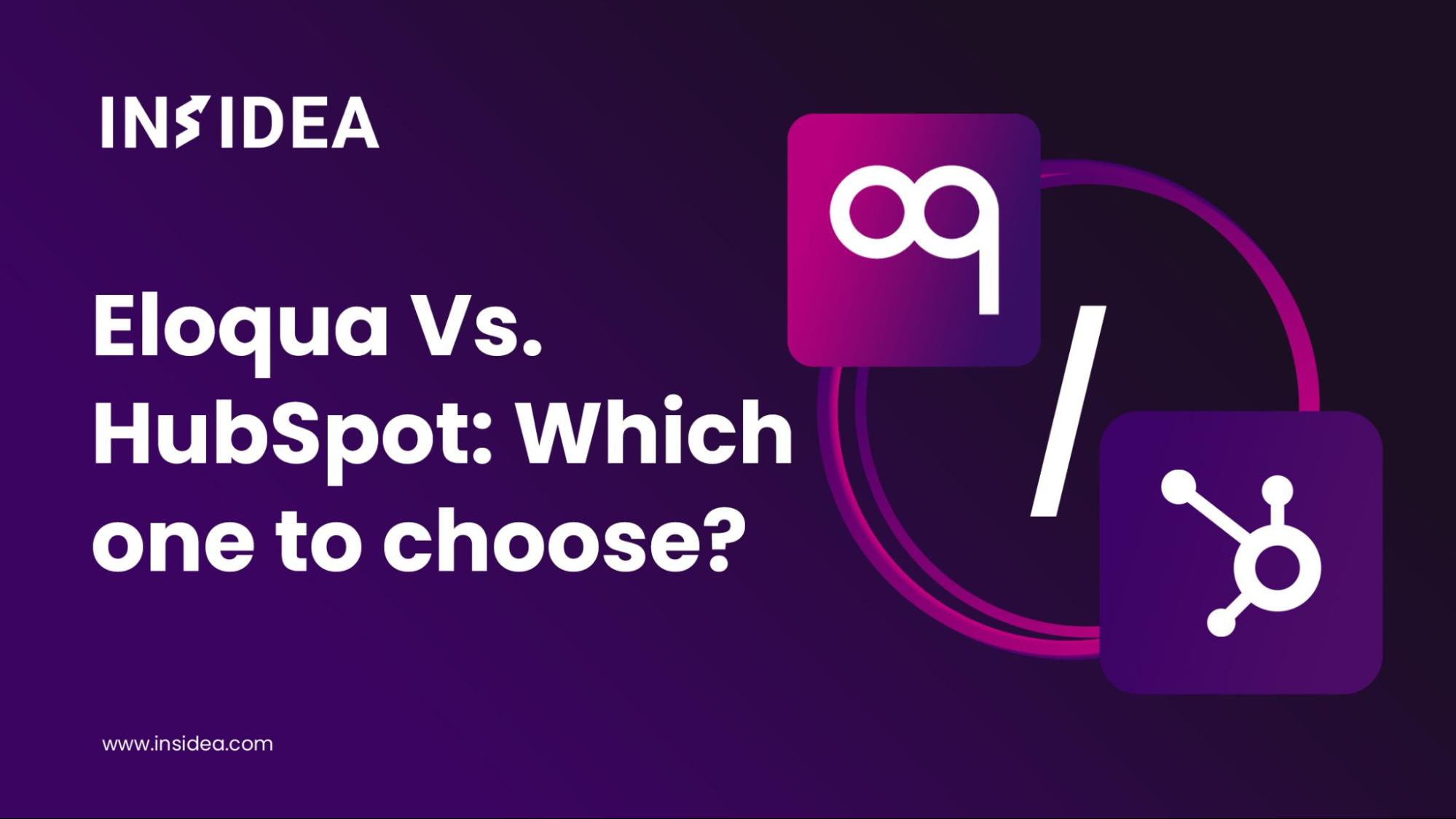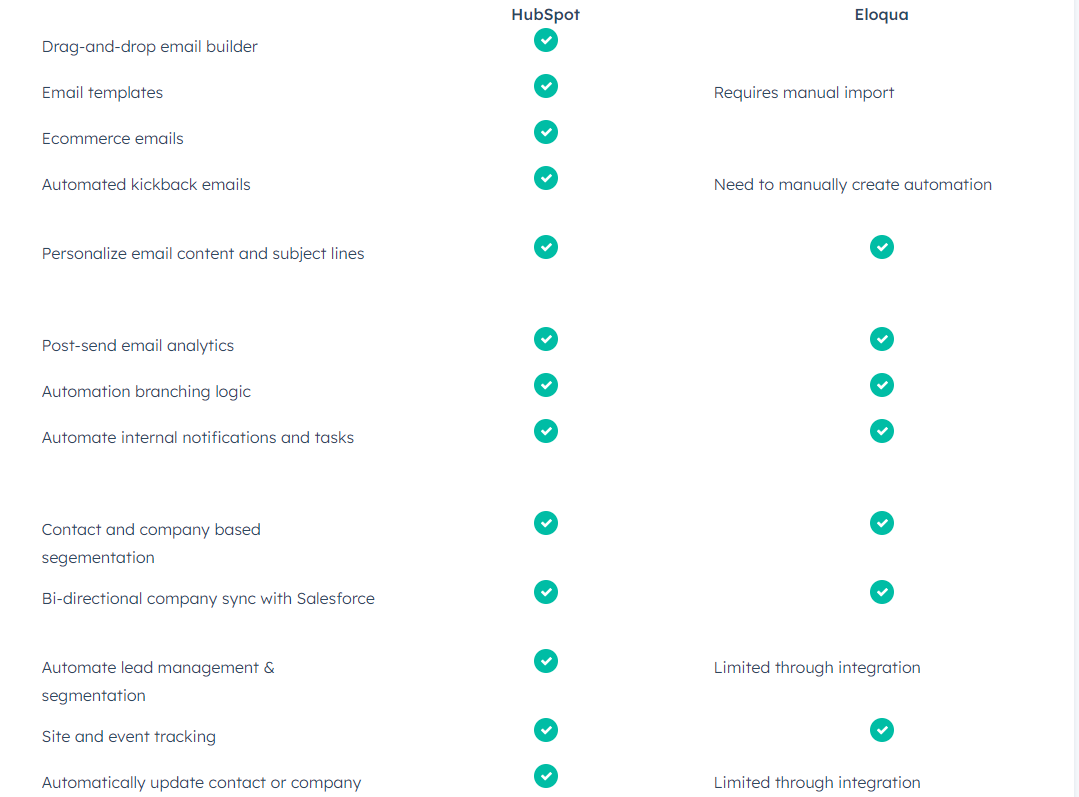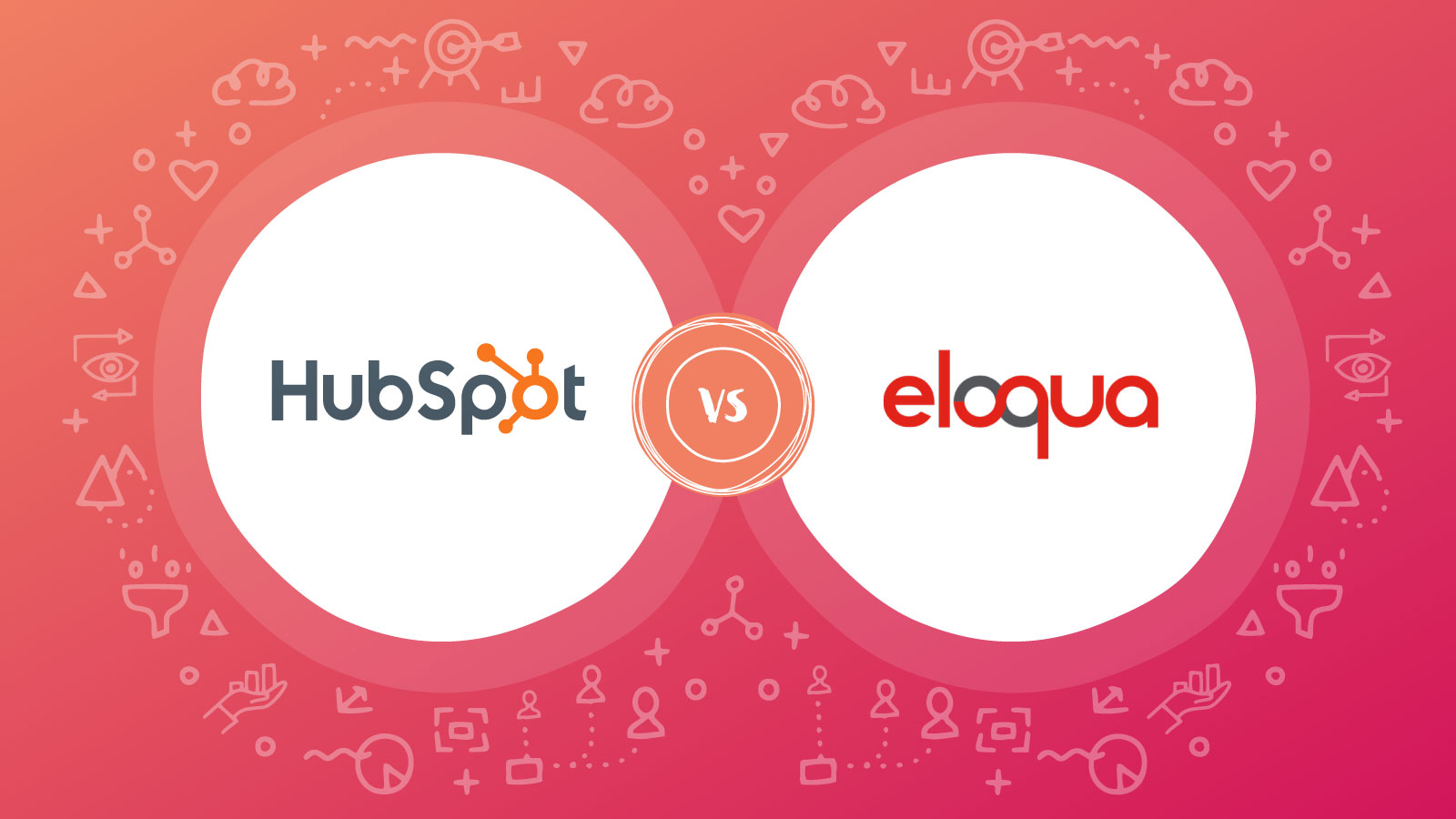HubSpot excels in user-friendliness and offers a comprehensive suite for inbound marketing. Eloqua is best known for its advanced automation capabilities and robust analytics.
HubSpot and Eloqua are both leading marketing automation platforms that cater to different business needs. HubSpot focuses on small to mid-sized companies, offering an intuitive interface and a wide range of tools for content management, social media, and lead generation.
Its inbound marketing approach helps businesses attract and engage customers effectively. On the other hand, Eloqua targets larger enterprises, providing sophisticated features for lead scoring, campaign management, and detailed analytics. Companies often choose between these two based on their specific goals, size, and marketing strategies, making understanding their differences crucial for informed decision-making.

Credit: insidea.com
Introduction To Marketing Automation
Marketing automation simplifies how businesses connect with customers. It streamlines tasks like email campaigns, social media posts, and lead generation. Two leading tools in this field are HubSpot and Eloqua. They both help businesses grow but have different features.
The Rise Of Digital Marketing Tools
Digital marketing tools are essential in today’s business world. They help companies reach their target audience easily. Here are some key factors driving this rise:
- Increased Internet Usage: More people are online than ever before.
- Data-Driven Decisions: Businesses rely on data to shape their strategies.
- Consumer Expectations: Customers want personalized experiences.
These factors boost the demand for marketing automation tools. They enable businesses to create targeted campaigns efficiently.
Why Automation Is Key
Automation saves time and reduces human error. Here’s why it is crucial for businesses:
- Efficiency: Automating tasks speeds up processes.
- Consistency: Automated campaigns maintain a steady presence.
- Scalability: Automation allows businesses to grow without extra effort.
Both HubSpot and Eloqua offer unique automation features. Choosing the right one depends on your business needs. Evaluate their capabilities to find the best fit.

Credit: www.webdew.com
Hubspot: An Overview
HubSpot is a leading platform for marketing, sales, and service. It offers tools for businesses to attract, engage, and delight customers. HubSpot’s user-friendly interface makes it easy for teams to work together. This overview will highlight its core features and ideal users.
Core Features And Benefits
| Feature | Description | Benefits |
|---|---|---|
| CRM | Tracks customer interactions and data. | Helps understand customer needs. |
| Email Marketing | Create and send targeted campaigns. | Boosts engagement and conversions. |
| Content Management | Build and manage website content. | Improves SEO and user experience. |
| Analytics | Measures performance across channels. | Informs data-driven decisions. |
HubSpot offers these key features:
- Lead Generation: Tools to capture leads easily.
- Social Media Management: Schedule and track posts.
- SEO Tools: Optimize content for search engines.
- Customer Support: Provides ticketing and chat options.
Ideal User Base
HubSpot caters to various users:
- Small Businesses: Ideal for startups with limited budgets.
- Marketing Teams: Helps in campaign management and analytics.
- Sales Professionals: Streamlines lead tracking and follow-ups.
- Customer Support Teams: Enhances communication with clients.
Its versatility makes HubSpot suitable for many industries. Companies seeking growth benefit greatly from its tools.
Eloqua: An Overview
Eloqua is a powerful marketing automation platform. It helps businesses manage and optimize their marketing strategies. Eloqua focuses on lead generation, nurturing, and analytics. This platform is designed for companies aiming for growth and efficiency.
Core Features And Benefits
Eloqua provides a variety of features that enhance marketing efforts. Here are some key features:
- Email Marketing: Create targeted email campaigns easily.
- Lead Scoring: Prioritize leads based on their behavior.
- Marketing Automation: Automate repetitive marketing tasks.
- Analytics and Reporting: Gain insights from data to improve strategies.
- Integration: Connect with other tools and platforms seamlessly.
These features offer significant benefits:
- Increased efficiency in marketing operations.
- Improved customer engagement and retention.
- Better decision-making through data-driven insights.
Ideal User Base
Eloqua is best suited for mid-sized to large businesses. It targets organizations with complex marketing needs. The ideal users include:
- Marketing teams seeking advanced automation.
- Sales teams needing better lead management.
- Organizations focused on data-driven marketing strategies.
Companies in various industries can benefit from Eloqua. It works well for:
| Industry | Benefits |
|---|---|
| Technology | Streamlined lead generation and nurturing. |
| Finance | Enhanced customer relationship management. |
| Healthcare | Targeted communication with patients and providers. |
Eloqua stands out for businesses needing robust marketing solutions.
Comparing The Giants: Hubspot Vs Eloqua
HubSpot and Eloqua are leading marketing automation platforms. They each offer unique features. Choosing the right one is crucial for business growth.
Ease Of Use
HubSpot is known for its user-friendly interface. New users can navigate it easily. It offers a simple dashboard with drag-and-drop features.
Eloqua, while powerful, has a steeper learning curve. Its interface may confuse first-time users. Training resources are available, but they require time and effort.
| Feature | HubSpot | Eloqua |
|---|---|---|
| User Interface | Simple and intuitive | Complex and detailed |
| Learning Curve | Short | Long |
| Training Resources | Extensive | Available but limited |
Integration Capabilities
HubSpot excels in integration options. It connects easily with many tools. Popular integrations include Salesforce, WordPress, and Shopify.
Eloqua also offers robust integration features. It connects well with CRM systems and analytics tools. However, it may require technical expertise for setup.
- HubSpot:
- Salesforce
- Shopify
- Zapier
- Eloqua:
- Salesforce
- Oracle CRM
- Microsoft Dynamics
Customer Support
HubSpot offers excellent customer support. It provides live chat and email assistance. Users praise its quick response times.
Eloqua’s support is reliable but can be slower. It offers email support and a knowledge base. Users may wait longer for solutions.
- HubSpot:
- Live chat
- Phone support
- Email assistance
- Eloqua:
- Email support
- Knowledge base
- Community forums
Case Studies: Success Stories
Case studies showcase real-world success stories. Companies achieve growth and efficiency using HubSpot and Eloqua. Let’s explore how these platforms transformed businesses.
Success With Hubspot
HubSpot has empowered many organizations. Here are some notable success stories:
- Company A: Increased leads by 300% in six months.
- Company B: Improved email open rates by 40%.
- Company C: Doubled website traffic within a year.
These successes stem from HubSpot’s user-friendly tools. Companies use its CRM, marketing, and sales features effectively. They enjoy:
- Easy integration with existing systems.
- Customizable dashboards for tracking performance.
- Strong customer support and resources.
Many businesses report higher ROI after adopting HubSpot. They value its ability to align marketing and sales teams.
Success With Eloqua
Eloqua also boasts impressive success stories. Here are some key examples:
- Company D: Increased conversion rates by 25% in three months.
- Company E: Enhanced customer segmentation, leading to targeted campaigns.
- Company F: Reduced customer acquisition costs by 30%.
Organizations praise Eloqua for its powerful analytics. It helps businesses understand customer behavior better. Key benefits include:
- Advanced automation capabilities for campaigns.
- Comprehensive reporting tools.
- Seamless integration with various platforms.
Many companies see great results with Eloqua. They appreciate its focus on large-scale marketing efforts.
| Company | Platform | Success Metric |
|---|---|---|
| Company A | HubSpot | Leads up by 300% |
| Company B | HubSpot | Email opens up by 40% |
| Company C | HubSpot | Website traffic doubled |
| Company D | Eloqua | Conversions up by 25% |
| Company E | Eloqua | Improved targeting |
| Company F | Eloqua | Acquisition costs down by 30% |
Pricing: Investment And Roi
Understanding the pricing models of HubSpot and Eloqua is vital. Companies want to know if their investment will yield a strong return. Pricing affects budgeting and overall marketing effectiveness. Let’s break down the costs for each platform.
Hubspot Pricing Models
HubSpot offers a range of pricing tiers. Each tier caters to different business needs. Here’s a quick overview:
| Plan | Monthly Cost | Key Features |
|---|---|---|
| Free | $0 | Email marketing, forms, contact management |
| Starter | $45+ | CRM tools, ad management, reporting |
| Professional | $800+ | Marketing automation, A/B testing, SEO tools |
| Enterprise | $3,200+ | Advanced analytics, custom reporting, dedicated support |
HubSpot’s free plan provides essential tools for startups. As companies grow, they can upgrade for more features. The Professional and Enterprise plans offer robust marketing solutions.
Eloqua Pricing Models
Eloqua’s pricing is more complex. It typically requires a quote based on specific needs. Below are common components of Eloqua’s pricing:
- Base Fee: Starts around $2,000 per month.
- User Licenses: Additional users can cost $300 each per month.
- Additional Features: Advanced features may incur extra charges.
- Setup Costs: Initial setup can range from $10,000 to $20,000.
Eloqua caters to large enterprises. Its pricing reflects the complexity and depth of its tools. Companies should consider their specific needs to estimate costs effectively.
Both platforms offer unique pricing models. Businesses must weigh the costs against expected ROI. Analyzing long-term benefits can help in making an informed decision.
Making The Choice: Which Is Right For Your Business?
Choosing between HubSpot and Eloqua can be challenging. Each platform offers unique features. Understanding your business needs is crucial. This section helps you navigate the decision.
Considerations Before Choosing
Before making a choice, evaluate these key factors:
- Business Size: HubSpot suits small to medium businesses. Eloqua targets larger enterprises.
- Budget: Consider the total cost of ownership. HubSpot has a free tier; Eloqua is premium.
- User-Friendliness: HubSpot is more intuitive. Eloqua requires technical expertise.
- Features: HubSpot excels in inbound marketing. Eloqua is strong in automation.
- Integration: Ensure compatibility with existing tools.
Future-proofing Your Marketing Strategy
Future-proofing your marketing strategy is essential. Here’s how each platform supports growth:
| Feature | HubSpot | Eloqua |
|---|---|---|
| Scalability | Highly scalable for growing businesses | Best for large organizations |
| Updates | Regular updates and new features | Stable but less frequent updates |
| Support | Strong community and resources | Dedicated support for enterprises |
Consider your long-term goals. Choose a platform that evolves with your business. HubSpot focuses on inbound strategies. Eloqua emphasizes advanced automation. Your choice shapes your marketing success.

Credit: www.cognitionagency.co.uk
Frequently Asked Questions
Hubspot Vs Eloqua: Which Is Better For Marketing?
HubSpot is known for its user-friendly interface, while Eloqua excels in advanced analytics and automation features.
What Features Set Hubspot Apart?
HubSpot offers a comprehensive CRM, social media tools, and an integrated blog platform, enhancing overall marketing efforts.
Is Eloqua Suitable For Small Businesses?
Eloqua primarily targets larger enterprises, making it less ideal for small businesses with limited budgets and resources.
How Do Pricing Models Differ?
HubSpot provides tiered pricing based on features, while Eloqua typically requires a custom quote, often leading to higher costs.
Which Platform Has Better Customer Support?
HubSpot is praised for its responsive support team, while Eloqua’s support can be less accessible, depending on the package chosen.
Conclusion
Choosing between HubSpot and Eloqua depends on your specific business needs. HubSpot excels in user-friendliness and integration, while Eloqua offers advanced automation features. Assess your marketing goals carefully to make the best decision. Both platforms can drive growth, but the right choice will align with your unique strategy and objectives.


0 comments